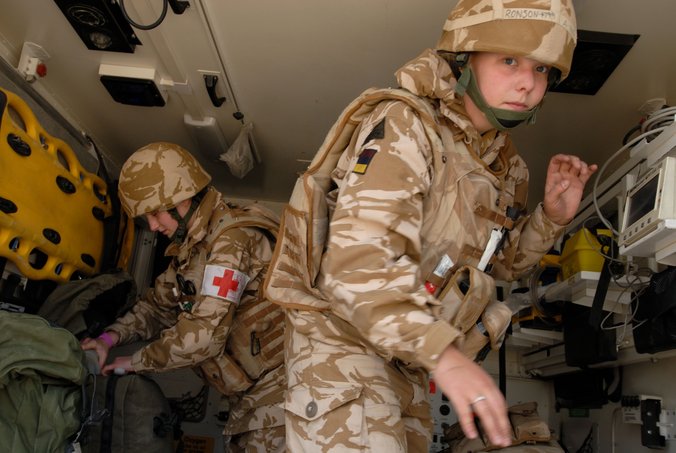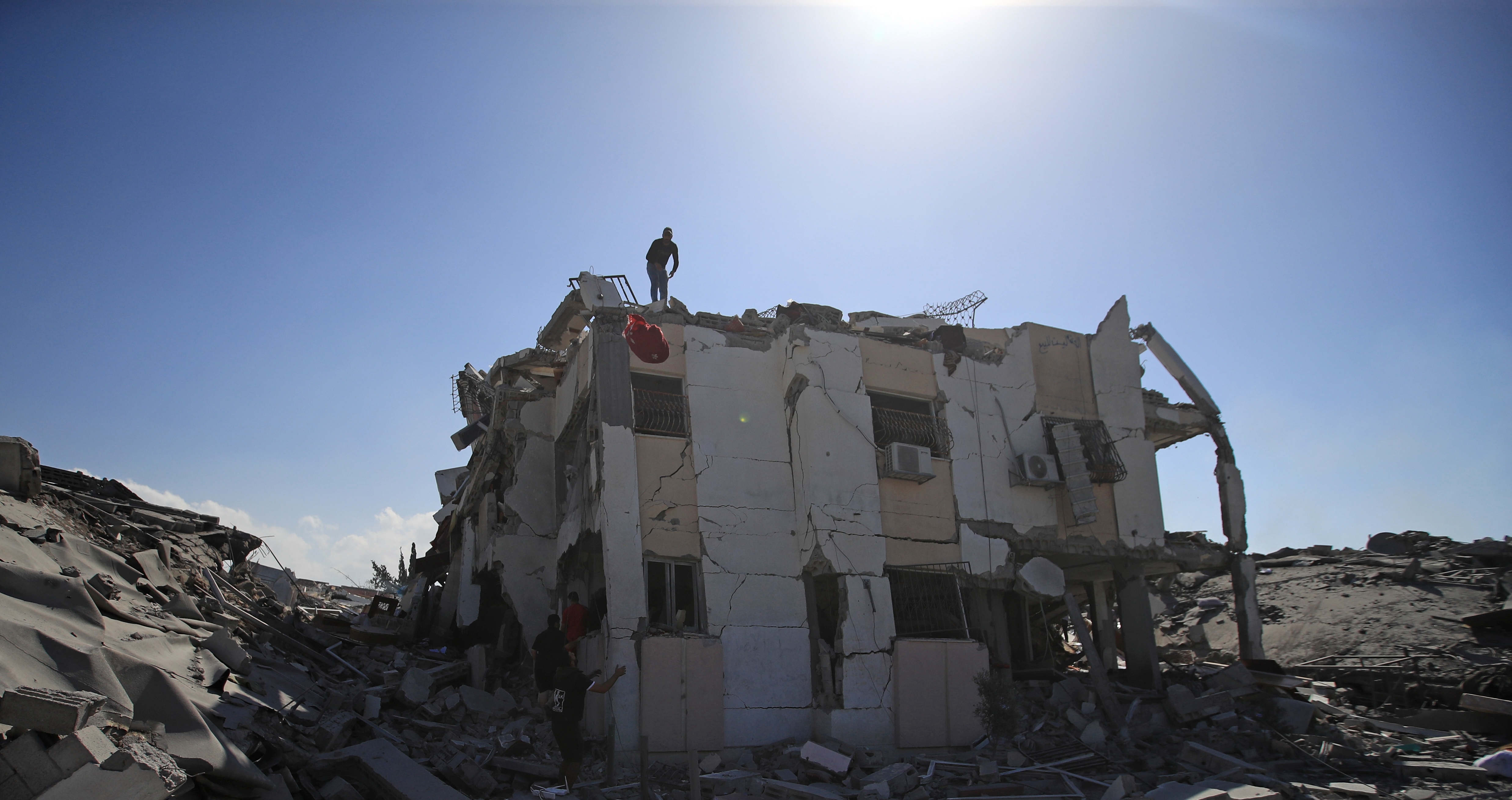The argument against an immediate ceasefire in Gaza goes something like this. Israel has set out to “destroy Hamas”; it is making good progress, and it would be a mistake to stop it now. Stopping now will only embolden Hamas, ease pressure on it to release hostages, and allow it to re-arm; as importantly, it will erode the momentum of the Israeli advance and defer indefinitely a satisfactory resolution of the Gaza conundrum. And fears of an imminent regional war have eased somewhat, assuaged by the vague and unwarlike speech from Hezbollah leader Hasan Nasrallah on Friday.
Even though “destroying Hamas” remains an unlikely goalpost, the conflict has settled into a deceptively steady maintenance phase. The Americans, initially sceptical in the extreme of any Israeli incursion, now seem minded to let the war rumble on for at least a few weeks more. Israelis, never especially empathetic toward Palestinian suffering, are particularly uncaring of the destruction their military is wreaking in the Gaza Strip; the death toll among their own civilians on October 7th was so vast that three weeks down the line, names are still being announced, bodies are still being released, and harrowing stories from the day are still being reported - keeping Israelis locked in the loop of that awful day, reliving it over and over and over.
And Palestinian civilians are still being killed, to the apparent indifference of Israelis, Western governments, China, Russia, and even Gaza’s own military leadership; consider a Hamas spokesman saying earlier this week that it’s only right bunkers and tunnels are reserved for paramilitaries, and protecting Palestinian civilians is someone else’s job - maybe the UN’s.
This seemingly steady maintenance phase is deceptive. Far from settling into yet another Gaza round writ large, the war continues to take the region deeper into uncharted territory with every passing day: prolongation, in and of itself, equals escalation. A break in the fighting has never been more urgent, and will only grow more so with every passing day.
In no particular order, here are six reasons for an immediate ceasefire.
- A ceasefire would save lives. This seems banal, but it bears repeating: thousands of people are being killed in the Gaza Strip, completely unnecessarily, to no worthwhile military gain. Rescue teams can barely do their work under constant bombardment and with limited access to fuel and energy; hospitals have long ceased to function properly, adding hundreds more people with treatable injuries and illnesses to the death toll. Israeli soldiers are dying too. Every death is not only an unspeakable human tragedy, but also fuel for the continuation of the conflict and a powerful draw for more and more parties to join in.
- A ceasefire would allow for the release of hostages. There are dozens of civilian hostages Hamas has repeatedly offered to release in exchange for ceasefire, from foreign nationals swept up in their mass abduction operation to the elderly, the young and the sick. All these people deserve to be released from the dual nightmare of captivity and bombardment. Neither party gains anything from their plight.
- A ceasefire would stop Israel-Palestine going down the path of Yugoslavia or Rwanda. The apocalyptic strikes in Gaza, the recurrent air-raid sirens in Israeli cities and the risks of regional war are obscuring an even more febrile arena: the West Bank. Since the war, settlers have attacked dozens of communities, completely ethnically cleansing 15 small villages - homes to almost 1,000 people - as of the time of writing. Nearly 200 people have been killed. Here, too, exponential escalation is a stray bullet or torched household away, opening up dozens of new fronts between adjacent communities. That Israel’s mixed cities, where the Palestinians and Jews live on adjacent streets or share apartment blocks, have held back so far from sectarian violence is nothing short of heroic. But this will become more difficult as the war goes on, especially as far-right Israeli militias are doing their best to instigate sectarian violence there - consider a lynch mob besieging a dorm with several dozen terrified Arab students in the coastal city of Netanya last week.
- A ceasefire would defer, or even preclude, a devastating regional war. Nasrallah didn’t offer any red lines or ultimatum to Israel, and semeed at pains to distance his organisation from the fighting. However, is also painfully clear that Hezbollah will keep harassing Israeli forces and communities in the north with sporadic exchange of missile and small arms fire; and that other Iranian proxies, like the Houthis in Yemen, will continue doing the same. This kind of dynamic is like a 24/7 game of Russian roulette; either party exacting a spectacularly high number of casualties, even unintentionally, can blow the predictability of these exchanges out of the water. The same is doubly true of the war in Gaza itself: we are one destroyed hospital away from even the more sympathetic (or apathetic) regional regimes having to recalibrate their engagement with the war, if only in response to domestic outrage; the recalling of ambassadors not only by Turkey but by Jordan is a case in point. Israel is economically and strategically incapable of fighting a prolonged war on several fronts at once. A ceasefire that prevents such a war is good for Israel too.
- Even a brief ceasefire would allow diplomats to start de-escalating the conflict. There is little doubt that Israel’s stated aim - “destroying Hamas” - is unachievable: even if the entire military leadership is wiped out, the ideological framework will remain; and this is even before we get to the question of who will govern Gaza with even a shred of legitimacy if the entire governing apparatus was dismantled - the folly of the occupation and ham-fisted “de-Baathisation” of Iraq comes all too readily to mind. The Israeli government has already subtly changed tack from vowing to destroy Hamas in abstract to “defanging” and eliminating its “capabilities.” But if there is recognition that some sort of negotiations will be required to seal this chapter, they might as well start now.
- A ceasefire would clear the path for Israelis to get rid of Netanyahu. Even before the war, Israel’s longest-serving prime minister has also become Israel’s most divisive figure, helming a far-right coalition with character and agendas that make Viktor Orban look like Barack Obama. Now, having presided over Israel’s worst-ever military disaster, Netanyahu is a dead man walking - and the only reason he is still prime minister is the wariness of changing leaders mid-fighting, and the difficult of mounting mass protests under rocket fire. A lull would allow him to be displaced, and offer a plausible path towards reconfiguring Israel’s national unity government away from the far-right and toward the centre-left; replacing Betzalel Smotrich and Ben Gvir with Yair Lapid’s ultra-centrist opposition party. Remarkably, Israeli public opinion surveys suggest that Israel's most right-wing government failing so badly in the right’s natural political habitat - defence - has led to a majority of Israelis swinging in favour of a centre-left government, including the belief such a government would defend the country better. Translating change in public mood into an actual change in government cannot come soon enough.
The steady increase in Western leaders politely floating a “humanitarian pause” suggests they know much of the above, but lack the urgency. Humanitarian pause, lull, ceasefire, truce; whatever you call it, it needs to happen now.
The main onus is obviously on the Biden administration. But Britain can play its part too.
In seeming acknowledgement of London’s limited influence on the conflict, both Rishi Sunak and Keir Starmer have been calibrating their rhetoric exclusively to domestic ends - Sunak to clamp down even further on free speech, Starmer to try and exorcise what he perceives as the stubborn ghost of Corbynism. This is unbecoming either of a prime minister or a prime-minister-in-waiting. (The Labour leader has been improving in recent days by calling for a humanitarian pause; but he’s still putting so much emphasis on his opposition to a ceasefire - whatever the immediate difference - that it’s this opposition that carries the greater impact.)
Both men need to step up and build consensus toward a call for immediate ceasefire: first at home, where complementary calls for ceasefires by Starmer and Sunak will balance each other out and limit the the crude use of the Israel-Palestine as a stick to beat domestic political opponents with. The in Europe, and then among Israel’s main allies. If nothing else, this will give the Biden White House further impetus and wall-to-wall diplomatic backing to take that crucial step at last.





